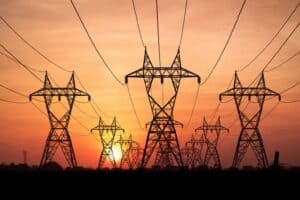Dikeledi Minyuku shared that her 10-month-old baby was oxygen dependent and that it was a struggle to pay almost R2,000 to refill the back-up cylinder.

Long periods without power are becoming a threat to people’s health and ability to survive in some households across South Africa.
This is according to News24 readers, who this week shared how severe load shedding was affecting them.
A woman named Tina said that her 66-year-old husband Eugene had been trapped outside the house when load shedding caused their gate motor to fail.
“[My] husband tried to climb over the wall in order to set the gate on manual opening, slipped at the top due to rainy weather and broke ribs,” she said.
Blackouts were also stressful for those dependent on a breathing apparatus and medical devices.
A woman who worked at night and slept during the day said she needed a machine to help her breathe because of sleep apnea.
But extended load shedding was robbing her of her sleep.
“Currently, I get an average of about three hours sleep a day, then have to come work a nine-hour shift, then go home to take care of my aunt who is disabled, and then my sleep gets robbed from me. I am not coping well,” she said.
“I have now officially made a loan to get a generator, but who knows if I will be able to sleep with the noise that thing makes?”
Neil said it was disturbing to have a breathing machine that was dependent on electricity for it to operate.
He did not believe there should be load shedding after 22.00pm, as it “could cause death if one has a severe case”.
Sharon Landman commented: “My Dad is oxygen dependent and really suffering during load shedding. How is Eskom going to replace him if he passes away due to lack of oxygen???”
Many with asthma complained that they could not use their nebulisers, machines which helped administer medication through inhaled mist.
“Just knowing I don’t have this crucial life support can actually cause me to have an asthma attack, as I become very anxious and my chest closes up,” said Maureen Newton.
Dikeledi Minyuku shared that her 10-month-old baby was oxygen dependent and that it was a struggle to pay almost R2,000 to refill the back-up cylinder.
Aysha Elias said their medical aid did not cover back-up oxygen tanks for their two-year-old son, who was also dependent on oxygen around the clock.
They had to fork out R1,000 for a tank to be delivered the same day.
“The struggle is real,” she said.
A reader named Vaughan, whose wife has a terminal lung condition, said problems with substations and then load shedding in Fourways had been extremely stressful and costly for them.
He had to buy her a portable oxygen machine, but that only lasted about three hours at a time, so he also had to rent oxygen tanks.
After no power for 16 hours during a 24-hour period, he had been forced to buy an inverter to run his wife’s concentrator for longer periods of time.
Tirsa was stressing about her son who has Wilson’s Disease, a rare genetic disorder that prevents the body from removing extra copper.
They had to keep his imported medication, which costs R15,000, in a fridge below two degrees Celsius.
“If the electricity is off for long periods of time, the fridge is not that cold anymore. [I am] worried to lose the medication to load shedding.”
Monique Spencer Bouwer said her family was in a similar situation, as both her husband and son were diabetic.
“All the insulin has to he kept at a certain temperature… or we lose it. In February we lost a month’s supply.”
Eskom was expected to implement Stage 2 load shedding until 23.00pm on Wednesday after it managed to return several generating units to service, according to Fin24.
For more news your way, download The Citizen’s app for iOS and Android.
Support Local Journalism
Add The Citizen as a Preferred Source on Google and follow us on Google News to see more of our trusted reporting in Google News and Top Stories.








